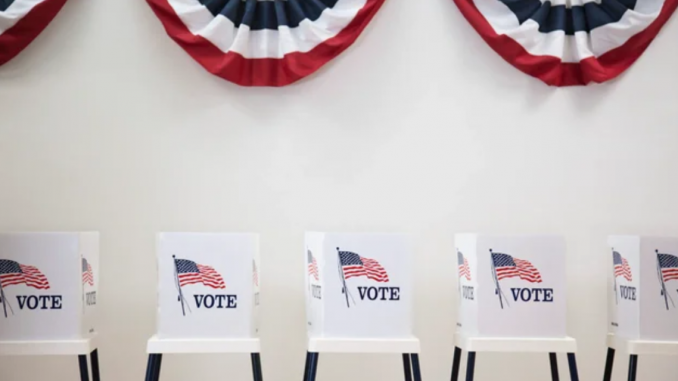
Over 1,000 LGBTQ+ candidates ran for office last year in what was widely termed a “rainbow wave,” resulting in historic gains in political representation across the country. But despite this progress, LGBTQ+ candidates still face significant bias from voters, a new study has found.
After polling thousands of voters in the United States, United Kingdom, and New Zealand, researchers from Loyola Marymount University and the University of North Carolina concluded that voters still “penalize” queer and trans candidates “to varying degrees.” The biases against LGBTQ+ candidates were “strongest in the United States,” as the researchers claim in the Journal of Politics report.
Although some voter bias was due to “outright prejudice,” the study suggests that concerns over the “electability” of LGBTQ+ candidates also play a role.
“It is sobering to find that voters still discriminate against lesbian, gay and transgender candidates,” the researchers wrote. “Our findings, however, do not imply that LGT candidates are doomed to failure, but rather that they face extra hurdles in electorates where homo- and transphobia remain present.”
In the study, authors Gabriele Magni and Andrew Reynolds presented participants with five pairs of hypothetical candidates. Each “candidate” had eight fully randomized demographic traits, such as their sexual orientation, gender, race, and ethnicity. Participants were then asked about their voting preferences and about their perceptions of the fictional candidates.
In all three countries, voters were less likely to support queer candidates. Gay candidates were penalized by nearly 7% in the U.S., 5% in the U.K., and 3% in New Zealand.
The bias against transgender political hopefuls was even stronger. As previously, U.S. respondents were the least likely to back a trans person running for office, docking them by a margin of 11%. Individuals in the U.K. were 10.7% less likely to vote for a transgender candidate and 8.5% less likely in New Zealand.
Especially alarming is the fact that Black gay candidates faced an additional penalties — by a 3.6% margin — as compared to white gay candidates. That added bias could explain why the U.S. only elected its first Black, gay Congressmen last year.
The study also examined how different facets of voters’ identities affected their choice of candidate. The U.S. saw the most severe partisan divide in terms of bias toward queer and trans political hopefuls: Self-described liberal voters in the U.S. showed a very slight preference for these candidates (+0.1%), whereas conservatives penalized them by a degree of over 17%.

There was also a staunch gender divide, with men penalizing queer and trans candidates more than twice as strongly as women did.
Still, recent figures show that LGBTQ+ candidates are far from doomed. A July study from the Victory Institute found that queer cis women win their races at a high rate, with 69% of candidates winning election. The organization’s annual Out for America report, which examines the statistics of out LGBTQ+ elected officials in the U.S. and their demographics, also found that the number of LGBTQ+ officials has increased by 17% in the past year alone.
Candidates of color, meanwhile, are getting elected “at a much faster pace” than their white peers. Of gains in LGBTQ+ political representation in recent years, the Victory Institute reported that the number of Black queer and transgender candidates is growing the fastest.
Taken together, these studies show that although LGBTQ+ candidates still face challenges, they are continuing to run — and win — in ever-increasing numbers.
*story by them.
(This is a biased article from homosexual news outlet them. It’s purpose here is to show that we are winning against the homosexual agenda in America!)
